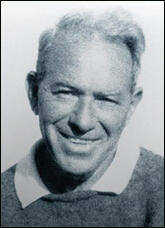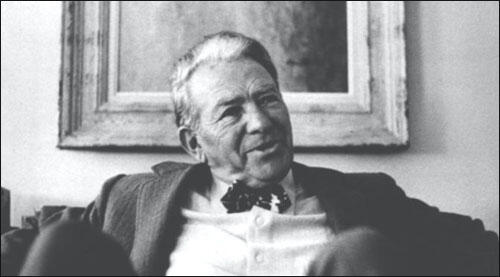Yip Harburg

Isidore Hochberg, the son of immigrants from Russia was born in New York on 8th April, 1898. He began writing poetry at high school but after graduating he found work as a meat-packer. In 1920, Hochberg, who had now changed his name to Edgar (Yip) Harburg, established himself as a successful electrical contractor. However his company went bankrupt following the Wall Street Crash and the arrival of the Depression.
Out of work, a friend from school, the songwriter, Ira Gershwin, introduced him to a musician, Jay Gorney. Together they wrote Brother Can You Spare a Dime (1932), a song about unemployment. Harburg moved to Hollywood where he wrote the lyrics for a series of musicals including Gold Diggers (1933), The Singing Kid (1936), The Wizard of Oz (1939), a film for which he won an Academy Award, Cabin in the Sky (1943), Can't Help Singing (1944), California (1946) and Centennial Summer (1946). These films included songs such as Only a Paper Moon, April in Paris, Over the Rainbow, Old Devil Moon and If This Isn't Love.
Harburg was a socialist and Harburg, who had been a member of several radical organizations, was named in Red Channels. This pamphlet, distributed to organizations involved in employing people in the entertainment industry, listed 150 people who had been involved in promoting left-wing causes. Harburg was blacklisted in Hollywood and after two years without film work, returned to New York where he wrote Broadway shows. As a result of the blacklist, Harburg's highly successful Broadway musical, Finian's Rainbow, was not filmed until 1968. Edgar Yip Harburg died in Los Angeles on 5th March, 1981.
In 1947 the House of Un-American Activities Committee (HUAC) began an investigation into the Hollywood Motion Picture Industry. The HUAC interviewed 41 people who were working in Hollywood. These people attended voluntarily and became known as "friendly witnesses". During their interviews they named several people who they accused of holding left-wing views. This included Robert Taylor, who complained about the radical lyrics of Harburg's song, And Russia is Her Name, in his film, A Song of Russia (1944).

Harburg was a socialist and Harburg, who had been a member of several radical organizations, was named in Red Channels. This pamphlet, distributed to organizations involved in employing people in the entertainment industry, listed 150 people who had been involved in promoting left-wing causes.
Harburg was now blacklisted in Hollywood and after two years without film work, returned to New York where he wrote Broadway shows. As a result of the blacklist, Harburg's highly successful Broadway musical, Finian's Rainbow, was not filmed until 1968.
Edgar Yip Harburg died in Los Angeles on 5th March, 1981.
Primary Sources
(1) E. Y. Harburg, Brother Can You Spare a Dime (1930)
They used to tell me I was building a dream
And so I followed the mob
When there was earth to plow or guns to bear
I was always there - right on the job.
They used to tell me I was building a dream
With peace and glory ahead -
Why should I be standing in line Just waiting for bread?
Once I built a railroad, made it run,
Made it race against time.
Once I built a railroad, now it's done -
Brother, can you spare a dime?
(2) E. Y. Harburg was interviewed by Studs Terkel in Hard Times (1970)
In the song the man is really saying: I made an investment in this country. Where the hell are my dividends? Is it a dividend to say: "Can you spare a dime?" What the hell is wrong? let's examine this thing. It's more than just a bit of pathos. It doesn't reduce him to a beggar. It makes him a dignified human, asking questions - and a bit outraged, too, as he should be.
Everybody picked the song up in 1930 and 1931. Bands were playing it and records were made. When Roosevelt was a candidate for President, the Republicans got pretty worried about it. Some of the network radio people were told to lay low on the song. In some cases, they tried to ban it from the air. But it was too late. The song had already done its damage.
(3) E. Y. Harburg, letter to an executive of Metro-Goldwyn-Mayer, who had asked him to appear before the House of Un-American Activities Committee (1950)
As a firm, almost fanatical believer in democracy, as a proud American, and as the writer of the lyric of the song God's Country, I am outraged by the suggestion that somehow I am connected with, believe in, or am sympathetic with Communist or totalitarian philosophy. Guilt by association is an European doctrine which has always been repudiated in this country, and it is about time that decent liberals and good Americans fought back against this European theory.

